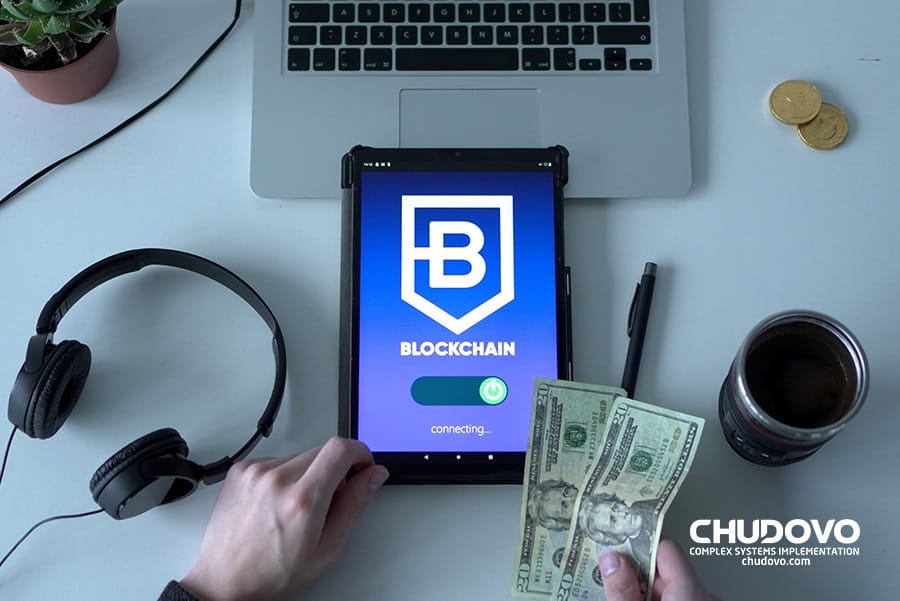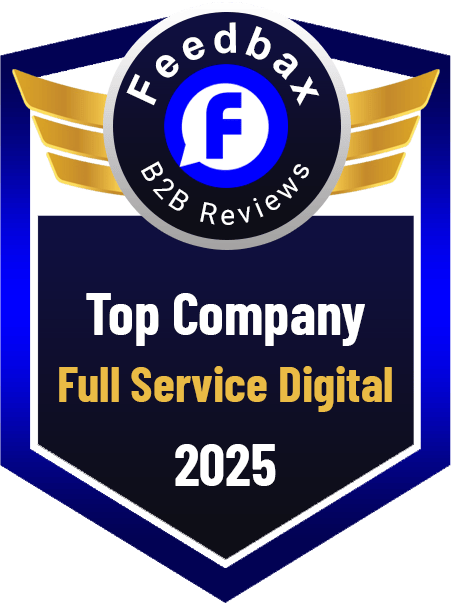Yes, you can find the examples in this article:
Blockchain in Retail: 10 Best Use Cases And Real-life Examples
Blockchain in retail refers to using blockchain technology to record digital transactions in a distributed ledger within the retail sector. Leveraging the power of blockchain technology, retailers can create more secure and efficient systems that provide customers with a better overall experience. Retailers can use blockchain technology to improve their retail service experience and provide transparency, security, and efficiency.
Blockchain can offer many opportunities for the retailer's industries, allowing many participants to share, store, and record information with their customers. However, blockchain has recently proven to be more reliable than before. After the 2020 lockdown period in which many retailers lost customers, some retailers decided to entrust their projects to the hands of experienced blockchain consulting developers.
Market reports indicate that the global blockchain in the retail market is expected to grow from $123.1 million in 2020 to $1644.4 million in 2027, representing a compound annual growth rate of 44.5%. In this article, we will explore the ten best cases of blockchain in retail and provide real-life examples to help you understand how this technology can improve the customer experience.

Top 10 Use Cases of Blockchain in Retail
Below are the ten famous use cases and examples of Blockchain technology in the retail industry:
1. Supply Chain Management
Every retailer in the industry is trying to find a new balance between preventing losses and making money in today's world. So blockchain technology is used to improve the supply chain for retailers by providing transparency and accuracy. This process can help improve retailers' efficiency and reduce costs, leveraging the power of blockchain technology.
As a retailer or business owner, you get to create a secure flow of goods and services throughout the entire supply chain, from the removal of raw materials to the shipment and point of consumption. This ensures food safety with the internet of things (IoT) and blockchain from one local grocery store to another.
This way, every food supplier in the retail industry coordinates activities such as production, procurement, inventory management, transportation, warehousing, and good customer servicing, while preventing economic loss from spoiled food and ensuring good food safety. According to a report from the CDC, there are still 48 million US citizens that suffer from foodborne illnesses.
One of the goals of supply chain management is to make sure that the products get to the right place and at the right time while minimizing costs and maximizing customer satisfaction. Reducing intermediaries in the supply chain also reduces fraud and human errors that are always associated with transactions.
With blockchain technology, when a fraud incident happens, the retailer will have a comprehensive record to enable the company to trace its source. Retail companies using blockchain implementation can trace records of products right from where it was extracted to where it is currently cited. This process helps the retailer know whenever the product is not in the designated place.
Real-life examples of blockchain in supply chain management
Since Walmart entered the blockchain market, they have been collaborating with different companies to deliver over 500,000 shipments of goods to distribute across the country. In the food industry, Walmart collaborated with IBM to track food products. The collaboration involves Walmart using IBM’s food trust platform to track how the food moves from the farm to the store.
This has enabled Walmart to reduce the time it takes to trace the origin of food products from days to seconds. The platform has also helped Walmart reduce food waste by 15%.
Another example is Walmart Canada collaborating with DLT labs– a developer of enterprise blockchain solutions to tackle the enormous widespread and persistent problems, which are logistics and transportation and managing large numbers of invoices payments. The ridiculous amount of manual work needed to move goods leads to loss of data and delays in delivery, causing Walmart to lose 70% of invoices, with some others containing data inconsistency.
A lot of companies like Nestle, Tyson food, Carrefour, Raw seafood, and others also use the food trust platform.
Countries like Germany and Russia have explored blockchain in retail technology in their retail industries and companies. The three economic sectors, food, energy, and pharmaceutical industries, are the fastest-growing sectors using blockchain technology.
In Germany, the government is looking into using blockchain technology to improve the efficiency and security of payments. In Russia, the government is looking into using blockchain technology to improve supply chain management efficiency and reduce fraud. Both countries are also exploring the use of blockchain technology to improve customer experience and create more secure and transparent loyalty programs.
Diamond giant (De Beers) has blockchain implementation to track diamonds from the moment they are mined to when they are sold to customers. This technology helps De Beers ensure that the diamonds they sell are conflict-free and of the highest quality, providing their customers with the assurance that they are buying the real deal. By leveraging the power of blockchain technology, De Beers can provide a secure, transparent, and immutable system that helps ensure the authenticity of their diamonds.
2. Payments
As a retailer, conducting transactions and being adamant about accepting credit cards can easily lead to fraud. Using bitcoin in your
retail industry is faster than accepting cash and cheaper than credit card payments.
Payments mean the transfer of money from one party to another, and blockchain technology can be used to facilitate secure and efficient payments. This can help improve your customer's experience.
When retailers have the knowledge of blockchain technology and decide to use it for their businesses, it becomes easy for transactions to be made securely and quickly with no disruption. These retail companies have the power to create digital currencies with blockchains such as bitcoin, which can be used to make payments without the need for a bank or other financial institution.
Real-life Examples
- Retail companies like Walmart are using IBM’s blockchain platform to help customers to make payments using a digital currency like bitcoin. This has been able to help Walmart to reduce costs and also increase good customer experience.
- In the blockchain retail sector, Amazon is collaborating with Microsoft to use its blockchain platform. Customers can pay using digital currencies like Ethereum, helping Amazon to reduce costs.
- In 2006, Visa partnered with chain– a blockchain enterprise that develops fast, secure, and simple transactions. These collaborations show how blockchain technology has been used to facilitate payments in the retail sector, creating a blockchain-based payment system that enables customers to make payments using digital currencies such as Ripple. This process has been able to help Visa to have a transparent and immutable platform for payments allowing them to also process payments faster and detect errors.

3. Boosting Loyalty Programs with Blockchain Technology
Oracle studies have shown that 71% of US citizens are already involved in loyalty programs, and 50% already have the app installed on their phones. Loyalty programs are an excellent way to appreciate their customers for all their patronage and encourage them to continue doing business with you.
And 62% of customers are always ready to choose one brand because of the loyalty program. If, as a retailer, you are not implementing a loyalty program to be a good engagement tool for your industry or company, then you need to discuss it in your next meeting.
Blockchain technology provides a transparent platform to help track customers' loyalty points and rewards and also helps businesses to create a better loyalty program that will reward the customers for their loyalty. But when this reward is not collected by the customer, which would cause inefficiencies, it can lead to a decrease in loyalty programs and satisfaction. The exciting part is that customers can use their loyalty points to only purchase products from the same brand.
Real-life examples
- Starbucks is using blockchain technology to keep its customers satisfied by providing a loyalty program that can get the customer to earn rewards points from all purchases made at the Starbucks store. And you can eventually redeem those points into rewards.
- Walmart also uses blockchain technology to provide loyalty programs and give reward points to all its customers that purchase an item in the Walmart store.
4. Protect Your Data with Blockchain Technology
Blockchain in retail provides retailers with all the security they need for their data and transactions. This technology protects and secures the retailer's data from unauthorized access and destruction.
How? Blockchain technology provides you with a secure and immutable platform for storing data. The retailer can then create a digital signature that would keep the authenticity of data and make sure that it hasn’t been tampered with.
For example, IBM and Microsoft have leveraged the power of blockchain technology to be able to create secure and immutable platforms for storing data and ensuring that unauthorized people don’t have access to it. This improves vulnerability to tampering.
5. Optimizing Inventory Management with Blockchain Technology
In the retail context, inventory management involves the tracking and managing of the workflow of goods and services between a business. Blockchain technology can be used to optimize inventory management in an industry that is using the blockchain platform for transactions.
With blockchain technology, businesses can provide more secure and efficient inventory management systems that will be able to track and manage the flow of goods and materials. For instance, coca-cola is using blockchain technology for its business to help optimize the inventory management system.
[banners type="1" color="blue"]
The power of blockchain in retail helps to create a secure, transparent, and immutable platform for tracking and managing the flow of goods and materials. This platform ensures that goods and materials are tracked accurately and that the data is secure and protected from unauthorized access.
6. Combating Counterfeit with Blockchain Technology
Counterfeiting has a negative impact on business, but with blockchain technology, you have an effective way to ensure that your products are authentic. As a retail company, if your products are counterfeit, it may lead to brand reputation damage, a decrease in customer trust, and monetary loss. And again, counterfeit products can also be a problem of life and death.
Retail companies can create digital signatures with blockchain technology, and every business that has access to blockchain technology can create digital signatures that can be used to verify the authenticity of goods and materials. This digital signature is stored on the blockchain and immutable, meaning it cannot be changed or manipulated. Additionally, the digital signature is secure, meaning that it is protected from unauthorized access.
Using blockchain technology to combat counterfeiting also provides businesses with an additional layer of security. For example, industries using blockchain technology to combat counterfeiting include luxury goods companies such as Louis Vuitton, which uses blockchain technology to track and authenticate its products.
Other companies like pharmaceutical companies such as Pfizer are using blockchain technology to track and authenticate their products, ensuring that they are authentic and have not been tampered with.
7. Personalization
Blockchain technology is a very effective way that provides customers with well-tailored experiences and products. Businesses can create digital signatures that can be used to identify customers and provide them with personalized experiences. This digital signature is stored on the blockchain and is immutable, meaning that it cannot be changed or manipulated.
Real-world examples of businesses using blockchain technology for personalization include retail companies such as Amazon. Amazon is using blockchain technology to track customers’ preferences and provide them with tailored product recommendations.
8. Digital Identity
Blockchain technology for digital identity is becoming increasingly important in this digital age. With the rise of online transactions, businesses and retailers are looking for ways to securely and reliably identify themselves and others. Blockchain technology provides a secure platform for digital identity management.
Using blockchain technology for digital identity management provides businesses and retailers with a secure and reliable way and can create digital identities that are secure and immutable. This digital identity is stored on the blockchain and is protected from unauthorized access. An example would be businesses using blockchain technology in companies such as Amazon.
9. Automating Business Processes with Blockchain Technology
Utilizing blockchain technology for automating business processes is an efficient way to simplify operations and boost productivity. By leveraging the power of blockchain technology, businesses can create secure and immutable platforms for automating processes such as payments, supply chain management, and customer service.
Automation also provides businesses with an additional layer of security. This platform ensures that processes are secure and protected from unauthorized access. A real-life example of the retail industry using blockchain technology for automation is financial services companies such as Visa, which is using blockchain technology to automate payments and reduce transaction costs.
Additionally, logistics companies such as UPS are using blockchain technology to automate supply chain management and reduce costs. Finally, customer service companies such as Zendesk are using blockchain technology to automate customer service processes and improve customer satisfaction.
10. Improving Traceability
Using blockchain technology to trace all the goods and materials moving from one place to another requires attention to detail and an analytical process. For some, there is no reliable system used for tracking products, and some companies use barcodes to trace their goods.
Companies that use blockchain-based systems create digital signatures that can be used to track and trace the origin of goods and materials. One of the best components of a blockchain-based tracking system is a smart tag, which can help track a product location in near real-time.
An example of businesses using blockchain technology for traceability is automotive companies such as BMW, which is using blockchain technology to track and authenticate parts used in their vehicles. This ensures that the parts are authentic and have not been tampered with, providing customers with peace of mind. Additionally, blockchain technology is being used by companies such as IBM to track and authenticate diamonds, ensuring that they are authentic and have not been tampered with.
Conclusion
Blockchain technology is revolutionizing the retail industry by providing businesses with secure and immutable platforms for personalization, digital identity management, automation, and traceability. By leveraging the power of blockchain technology, businesses can create secure and immutable platforms for providing customers with tailored experiences, securely managing digital identities, automating processes, and tracking and authenticating goods and materials.
Blockchain technology addresses issues that all retailers face, and the demand for blockchain consulting is increasing. So blockchain in retail can help industries to boost supply chain visibility and enhance loyalty programs.
If you need highly qualified Blockchain developers with great retail solutions expertise, contact us now!



